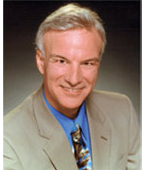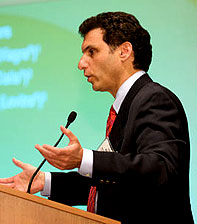
Host: Anti-Aging Psychologist Dr. Michael Brickey
Guest: Urologist/Harvard Medical School Associate Professor Dr. Abraham Morgentaler
Broadcast and podcast on webtalkradio.net. The podcast is also on the links below

Age brings declining testosterone levels. Low testosterone levels are associated with arteriosclerosis, diabetes, osteoporosis, erectile dysfunction, increased fat, and decreased libido, energy, and muscle mass. While at estimated 20% of American men over fifty have low testosterone levels, only about 5% of them get treatment for it.
Testosterone supplementation reminds me of vitamin supplementation. The government’s minimum daily requirements were based on what was necessary to prevent serious diseases like scurvy and rickets. They don’t reflect what is needed to be healthy. Likewise, medicine has tended to only be concerned about having minimum levels of testosterone as opposed to levels that foster good health.Fortunately, that is changing. Dr. Morgentaler believes that before long most primary care doctors will be familiar with diagnosis and treating low testosterone levels. The myths about cancer, cardiovascular problems, and “that’s just part of aging” are still out there but gradually being replaced by contrary research results and data-based practices.
Some of Dr. Morgentaler’s diagnostic and treatment preferences are:
- focus on free testosterone levels
- estradiol usually isn’t a concern unless the person isn’t responding to treatment or the rare cases where he experiences breast enlargement and tenderness
- testosterone pellets, which last 3-4 months are the most convenient treatment
- monitoring with blood tests is essential to good treatment
- he recommended www.sexhealthmatters.org for good information and a listing of men’s health doctor
- most guys need to get testosterone levels into the 400s and hopefully above 500 to feel optimized
- no OTC supplements clearly work substantially
Urologist Dr. Abraham Morgentaler is an Associate Clinical Professor at Harvard Medical School and Founder of Men’s Health Boston. His most recent book is Testosterone for Life. I highly recommend reading it before asking a doctor about testosterone levels and supplements. The book is very readable and his advice is research-based and even handed. He is also author of The Male Body, and The Viagra Myth.
Dr. Morgentaler’s websites are www.TestosteroneForLife.com and www.MensHealthBoston.com. Dr. Brickey’s other websites are www.DrBrickey.com and www.Anti-Aging-Speaker.com.


















